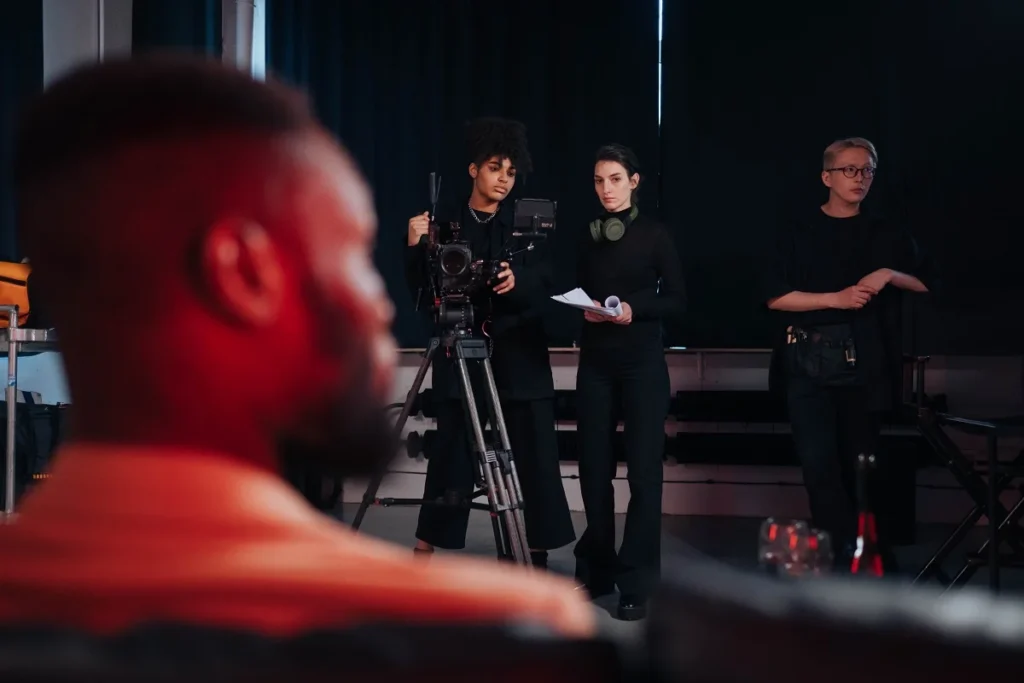Master the Essential Film Fundamentals for Success
Are you interested in pursuing a career in the film industry? Whether you want to become a director, writer, producer, or any other role within the industry, there are some essential film fundamentals that you need to master to succeed.
In this article, we’ll explore some of the most important film fundamentals that every aspiring filmmaker should know. From storytelling to cinematography, sound design to editing, we’ll cover all the key areas that you need to focus on to develop your skills and build a successful career in the film industry.
1. Storytelling
At the heart of every great film is a compelling story. Whether you’re writing a screenplay, directing a film, or producing a movie, your ability to tell a story is crucial to your success.
To master the art of storytelling, you need to understand the basic elements of narrative structure. These include:
- The setup: This is where you introduce the characters and the world they live in.
- The inciting incident: This is the event that sets the story in motion.
- The rising action: This is where the tension and conflict begin to build.
- The climax: This is the high point of the story, where the conflict is resolved.
- The resolution: This is where the story comes to a close.
By understanding these basic elements, you can create a compelling story that engages your audience and keeps them invested in your film.
2. Cinematography
Cinematography is the art of capturing images on camera. It’s one of the most important film fundamentals, as it’s what gives your film its visual style and tone.
To master cinematography, you need to understand the basics of camera angles, shot types, and framing. These include:
- High angle: This is when the camera is positioned above the subject, looking down on them.
- Low angle: This is when the camera is positioned below the subject, looking up at them.
- Wide shot: This is when the camera captures a wide view of the scene.
- Close-up: This is when the camera focuses on a specific detail or element within the scene.
- Medium shot: This is when the camera captures the subject from a medium distance.
By using these different camera techniques, you can create a visual language that helps tell your story and convey the emotions and themes of your film.
3. Sound Design
Sound design is another crucial element of filmmaking. It’s what brings your film to life, creating a rich and immersive audio experience for your audience.
To master sound design, you need to understand the basics of sound recording, editing, and mixing. These include:
- Dialogue: This is the spoken words of the characters in your film.
- Sound effects: These are the sounds that help create the atmosphere of your film, such as the sound of footsteps, doors opening, or cars driving by.
- Music: This is the score or soundtrack of your film, which helps set the tone and mood.
By using these different elements of sound design, you can create a rich and immersive audio experience that enhances the emotional impact of your film.
4. Editing
Editing is the process of selecting and arranging footage to create a cohesive and compelling story. It’s one of the most important film fundamentals, as it’s what gives your film its pacing and rhythm.
To master editing, you need to understand the basics of shot selection, pacing, and continuity. These include:
- Shot selection: This is the process of choosing which shots to include in your film and how to arrange them.
- Pacing: This is the rhythm and tempo of your film, which helps create tension and build emotion.
- Continuity: This is the consistency of the visual and audio elements in your film, which helps create a seamless and immersive experience for your audience.
By using these different editing techniques, you can create a film that flows smoothly and engages your audience from beginning to end.
Conclusion
To succeed in the film industry, you need to master the essential film fundamentals, including storytelling, cinematography, sound design, and editing. By understanding the basic elements of narrative structure, camera techniques, sound recording and mixing, and shot selection and pacing, you can create a film that engages your audience and tells a compelling story.
If you’re interested in developing your skills in these areas, consider taking the NYU Film and TV Industry Essentials online course and certificate program. This program is designed to give you a comprehensive understanding of the film industry and the skills you need to succeed.






